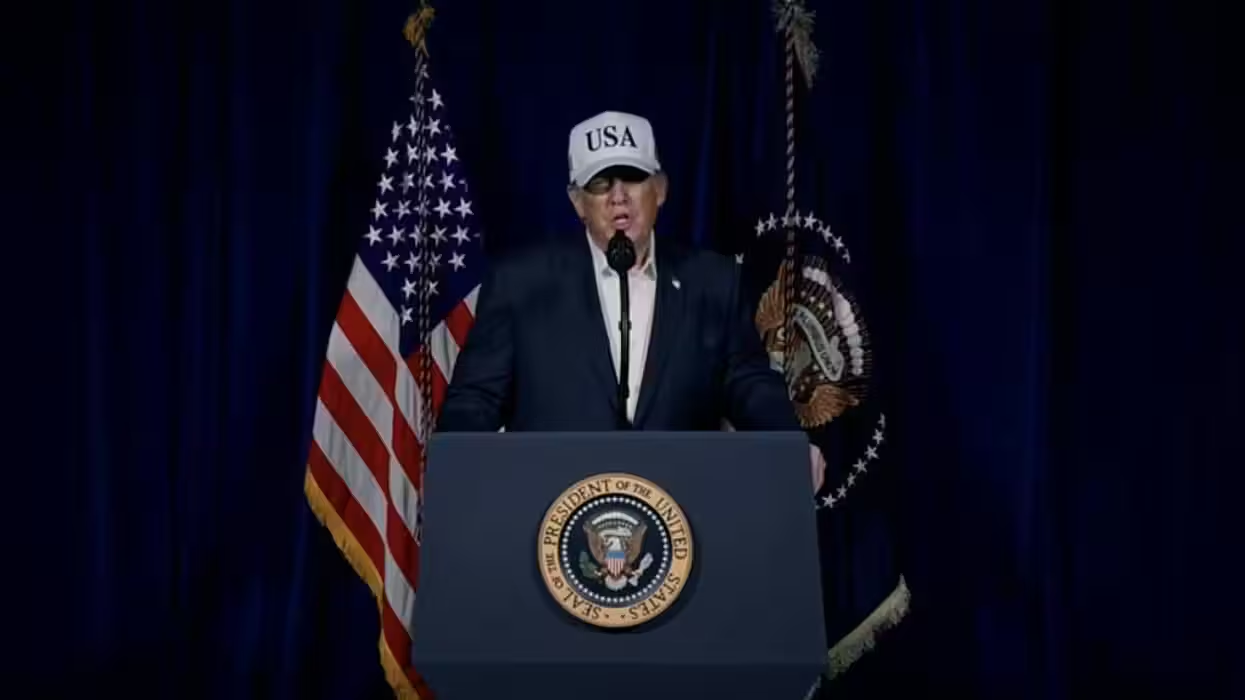
© 2026 Blaze Media LLC. All rights reserved.
New Study: China's Electric Cars Contribute More to Pollution Than Gas Guzzlers
February 13, 2012
"There are these electric cars out there touting themselves as being emission free, but you and I both know that's not true."
- Electric cars are often assumed to be better for the environment and therefore better for public health.
- A study by the University of Tennessee of electric vehicles in China, however, found that when you factor in where and how the energy for those vehicles is produced, the result is actually worse for public health when compared to gas-powered cars.
- Several factors, including proximity of homesteads to the power plant, use of coal for energy production and number of electric vehicles, contributed to these findings.
- Experts say different sources of electricity, cleaner coal-fired power plants and fewer communities near these plants in the United States makes this type of a pollution less of a risk here.

- (Photo: China Car Times)
Electric cars have been heralded by environmentalists as being better for the environment and human health. But what if this wasn't the complete truth? What if electric cars actually produced more pollution under certain conditions?
According to new research from the University of Tennessee, electric cars in China have had an overall worse impact on the public health with regard to releasing particulate matter compared to those guzzling gas. The research conducted by Chris Cherry, assistant professor in civil and environmental engineering, and graduate student Shuguang Ji, evaluated 34 major Chinese cities where electric vehicles, including bikes, outnumber conventional vehicles 2:1. Their research states that the number of electric cars have grown to more than 100 million in the country in the last decade.
"An implicit assumption has been that air quality and health impacts are lower for electric vehicles than for conventional vehicles," Cherry said in a statement. "Our findings challenge that by comparing what is emitted by vehicle use to what people are actually exposed to. Prior studies have only examined environmental impacts by comparing emission factors or greenhouse gas emissions."
According to a statement, particulate matter -- dust, soil, metal, acids, organic matter -- is released when fuel is combusted, like in a traditional vehicle, and during electricity generation, which would then be used by electric cars. The research states that 85 percent of electricity in China is generated from fossil fuels, 90 percent of which is from coal. On a per kilometer traveled basis in China, the researchers found that human health is more negatively impacted by electric vehicles than traditional models.
If the electricity used to power the vehicle were developed using a cleaner method, the researchers state electric cars would technically be the cleaner option. US News and World Report points out that in the United States, coal power plants have cleaner energy production compared to those in China. There are also smaller communities living near plants in the U.S., which reduces the number of those adversely affected by the pollution. It states that about half of U.S. electricity comes from coal:
But Cherry says his study clearly shows that electric vehicles aren't the zero-emission savior many expect them to be."I think electric vehicles have a lot of promise, but I'm not an evangelist," he says. "There are these electric cars out there touting themselves as being emission free, but you and I both know that's not true."
Late last year, the U.S. Environmental Protection Agency enacted stricter regulations on particulate matter from coal-fired power plants.
US News and World Report records Justin Kitsch, vice president of communications at The Electrification Coalition, as saying that supporting electric vehicles would help the U.S. become more energy independent, making use of its own resources.
Want to leave a tip?
We answer to you. Help keep our content free of advertisers and big tech censorship by leaving a tip today.
Want to join the conversation?
Already a subscriber?
more stories
Sign up for the Blaze newsletter
By signing up, you agree to our Privacy Policy and Terms of Use, and agree to receive content that may sometimes include advertisements. You may opt out at any time.
Related Content
© 2026 Blaze Media LLC. All rights reserved.
Get the stories that matter most delivered directly to your inbox.
By signing up, you agree to our Privacy Policy and Terms of Use, and agree to receive content that may sometimes include advertisements. You may opt out at any time.






